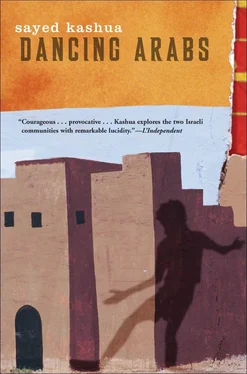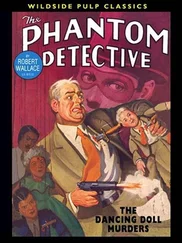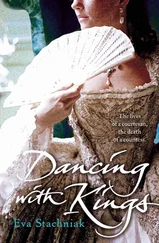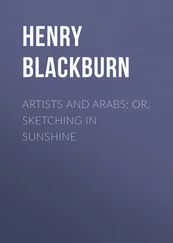Grandma was an orphan. Her mother died giving birth to her, and her father died shortly after that. She and her two brothers grew up with their uncle, her father’s older brother. Her aunt and uncle were good people. First they fed the orphans and only then did they feed themselves. They kept the orphans’ land safe and gave them what they had coming. They had a good life, better than the lives of children in the village who hadn’t lost their father.
My grandma didn’t know my grandpa, her husband, at all. She hadn’t met him in the fields or “any of that nonsense.” She curses him sometimes when she recalls how he took her. Al-shahib (the white-haired one) she’d call him. He was married then, and he had grown children. His two older daughters were married already. Grandma’s brother wanted to marry Grandpa’s third daughter, so Grandpa asked for Grandma in return. It’s known as badal (exchange marriage). You give me yours, I’ll give you mine. You protect my honor, I’ll protect yours. And she was a mean woman, Grandpa’s third daughter. She had her mind set on making my grandmother’s life miserable for marrying her father, as if she wanted to keep him to herself.
Once Grandpa hit Grandma because of her. The third daughter had come to his house and cried, “Father, Father, my husband hit me; he threw me out of the house.” It was all a lie, as it turned out afterward, but after what? After Grandpa gave Grandma a beating. Because that’s how it is with the badal. You hit that one, I’ll hit this one. You throw yours out of the house, I’ll throw mine out of the house. That’s how you keep your wives in check. It’s a kind of guarantee.
“But he was good to you,” Amneh tells her, and jabs her with her knee. “Why don’t you mention how he used to take you on his shoulders, like my husband did, Allah yerakhamu ? Why don’t you mention how he took you to Jaffa once, to the theater, to see singers perform?” Amneh turns to me and says, “Your grandfather put a tarbush on her head, gave her some men’s clothing, and took her to see singers. What woman in the village got to see singers perform back then? Forgot about that, didn’t you, you dried-out old woman? He used to take you everywhere on his horse.” And she gives Grandma another jab. Grandma smiles and mumbles something, and Amneh continues, “Without him, we wouldn’t even have known there was such a thing as the Dead Sea.”
If not for that picture of a face and shoulders, a man of about forty, with a little mustache and a blue jacket over a white shirt, there would be nothing left to remember my grandfather by. Sometimes my grandmother would tell me he was a hero, and sometimes she’d say he was just an old rake who’d abducted her from her aunt and uncle’s home when she was young.
On holidays, when we were very little, Grandma used to take us to the cemetery near the house. Almost everyone in the village would go, because that’s how it is: On the mornings of holidays you go to the cemetery. My father never came with us to visit his father. Grandfather’s grave was small and plain, less ornate than the others. The cemetery was full of people, and all of them were sitting around crying, alongside big white beautiful tombs. There were flowers on all of them. Some had little turrets, like the ones you find in a mosque. There were gravestones with three or four tiers. My older brother said that four tiers meant sheikhs or people who would definitely get into heaven directly, no questions asked, the way we’d been taught in religion classes. Each holiday the graves grew bigger. They started building them out of marble and ceramic. My older brother would roam about, looking for new ones, and he’d check to see if the dead really did come back. I was afraid to move too far away from Grandma. She said you must never step on the stones, because all of them had been graves once. I was careful and looked a million times before taking a step. I clenched Grandma’s flowing white dress, to make sure I didn’t get lost among all those people. I didn’t step on the smallest stones either, because I thought those might be the graves of children. My grandmother said little children don’t die. God simply picks them out and gathers them to him, because he wants to turn them into angels.
Five little blocks are covered in weeds. In winter the weeds grow high and green, and in summer they are yellow and dry. My grandmother bends the branches, exposing the blocks (which are covered in a thick layer of sand), sits down beside the grave, and starts reciting verses from the Koran. She says she knows plenty of verses, even though she’s never studied. Later, when the old men in the mosque start reading the holiday verses over the loudspeakers, everyone starts shaking hands and handing out money and candy to the children. Some kids in my class managed to collect enough money to buy ten pistols. All they had to do was to say Allah yerakhamu. Only boys would come to the cemetery to collect holiday money. Girls never did.
Grandma would change some bills in the grocery store and bring a bagful of coins with her to hand out to the kids. She gave out a lot of money, and I would get upset with her for not giving it all to me. I know those kids, I’d tell her. They don’t deserve any of it.
Grandma never allowed us to take money from people, though some of them would hand us coins even without our saying Allah yerakhamu. Grandma wouldn’t let us take cakes either, although the older women who looked just like her used to beg her to take a small slice in honor of the Prophet Mohammed. Grandma always responded politely and warmly. She kissed their hands, wished peace on the soul of their loved one in heaven, and didn’t take a thing.
I wouldn’t take anything either. I believed my grandmother when she said you shouldn’t take anything in a graveyard. She said we didn’t need anything, and that only the children who’d been bad would do it. She loved to take us along and kept saying that this way at least we would know where Grandpa was buried. Not like my father, who behaved as if it weren’t his father.
My father used to tell us about Grandpa too some times, especially on our way to the sea. Father had some set stories for car trips. Near Ramat Ha Kovesh he would always laugh and tell us again about Uncle Mahmoud’s accident and about how his new Dodge had been totaled. In Kfar Sava he would point to a small building and tell us that the Shabak was under there, and he had been there several times for interrogations. The interrogators had begged him to tell them what people were saying in the cafés, that’s all — but he wouldn’t. And when we’d go to the sea and pass by the cemetery of Tel Mond, he’d always remind us that all the tombstones bore the inscription 1948, THE BATTLE FOR TIRA. He said we had to believe him because he’d actually been there and had seen for himself what they said.
Without fail, Father always repeated those same stories whenever we drove by. He’d remind us that, to this very day, Tel Mond and Ramat Ha Kovesh won’t have anything to do with us, because we killed so many of their people. That he didn’t know how many Grandpa had killed, but he figured it had to be quite a few, because Grandpa was a fighter, even though he didn’t die in battle. He would always end the story with the promise that someday he’d stop and show us around the Tel Mond cemetery. We went to the beach almost every week. We never stopped there.
Grandma didn’t want us to go to the sea. She kept warning Father, suggesting that we go to the mountains instead; she said that for the same price he could light a fire and barbecue a few chickens for the children. She was always on edge as she waited for us to come back, and she didn’t stop worrying until she saw us herself. When we drove up the street, she would stiffen and try to count the passengers even before we’d parked. Grandma always said the sea was dangerous; even if we stayed close to the beach there was a chance that a deep well would form suddenly and suck us in. Her second stepson had drowned in the sea.
Читать дальше












